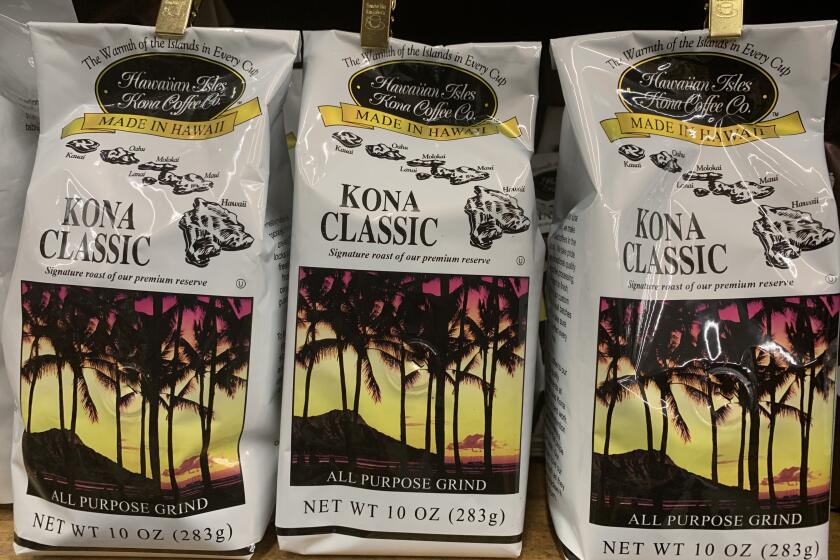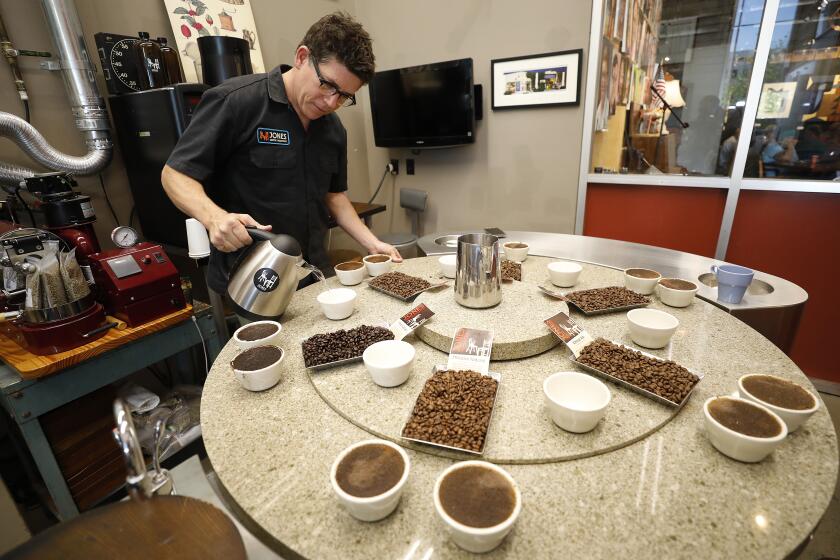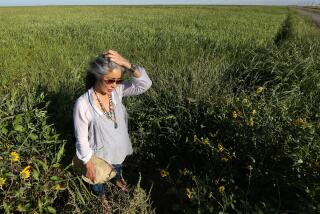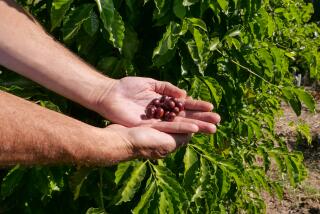Hawaii coffee farmers hope lawsuit settlements guarantee the Kona in your cup is real
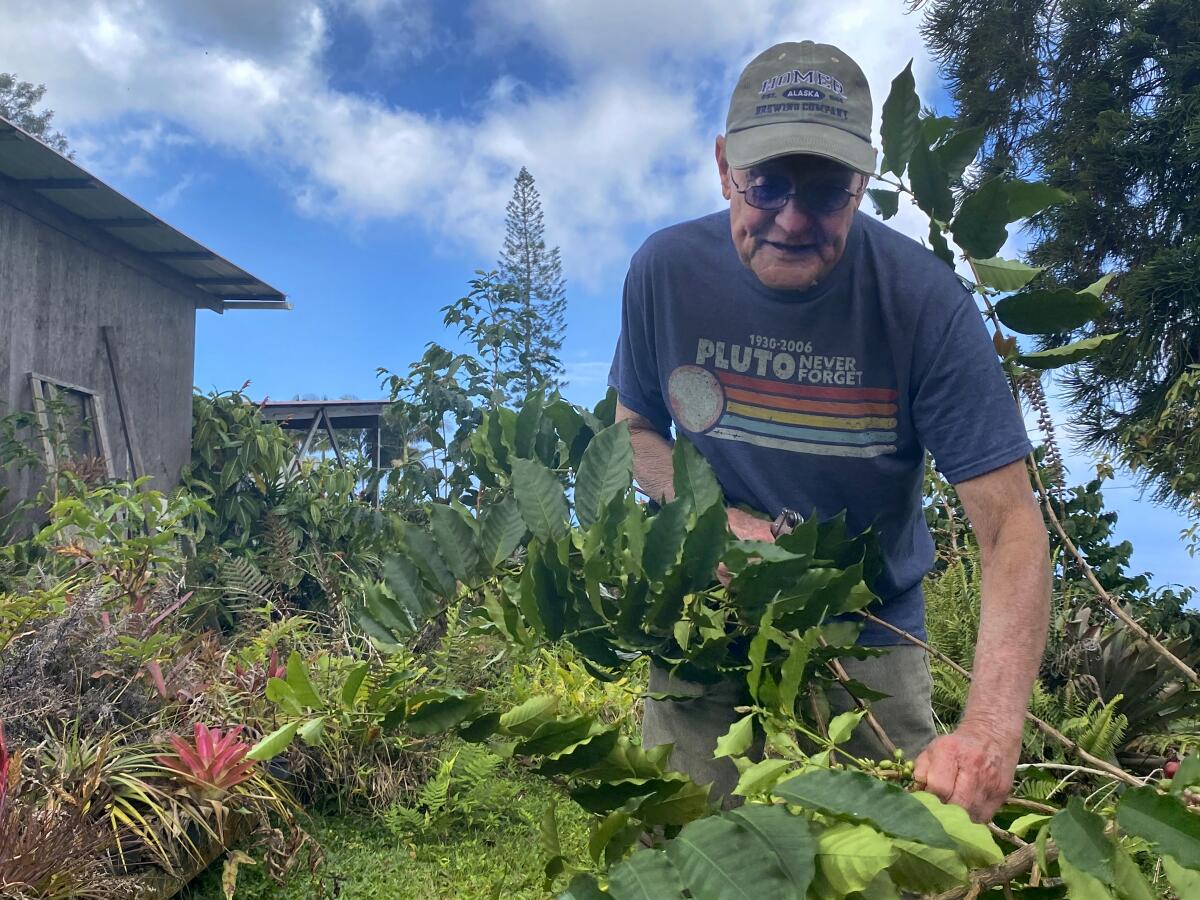
HOLUALOA, Hawaii — Whenever Suzanne Shriner left Hawaii to visit the U.S. mainland, she didn’t have to taste the Kona coffee sold at Costco, Walmart and other big-box stores to conclude it was fake.
She just looked at the price of the beans — significantly less per pound than it cost to produce on her farm on the Big Island.
“There’s a lot of money in counterfeiting, and it happens in every industry, but we’re not nameless, faceless corporations,” she said. “We’re small farmers who are directly impacted by this.”
She and fellow growers believe that passing off cheap, commodity beans as Kona has depressed prices for the real stuff and damaged its reputation as a sweet, smooth, slightly nutty brew.
Shriner hopes those days will soon be over. She is one of more than 700 farmers now eligible to receive the first settlement payments in a federal class action lawsuit filed against 22 big-name retailers and suppliers.
The growers say that the money — which after attorney fees works out to roughly $14,000 apiece — is less significant than commitments from 11 of the companies to abide by new rules about using the Kona name.
Blenders must say on their packages what portion of the beans are from the Kona belt — where rich volcanic soil, tropical sunshine, gentle breezes and jungle rain give them their distinctive flavor — and refrain from using the Kona label at all if that figure does not meet a minimum threshold set by Hawaiian law.
That threshold has long been 10%, but the state had no way of applying it to coffee sold outside of Hawaii.
The hope of the growers is that Kona will be regarded legally more like Champagne, which French vintners define as sparkling wine produced in the region by that name, or like Gucci, a brand with a trademark.
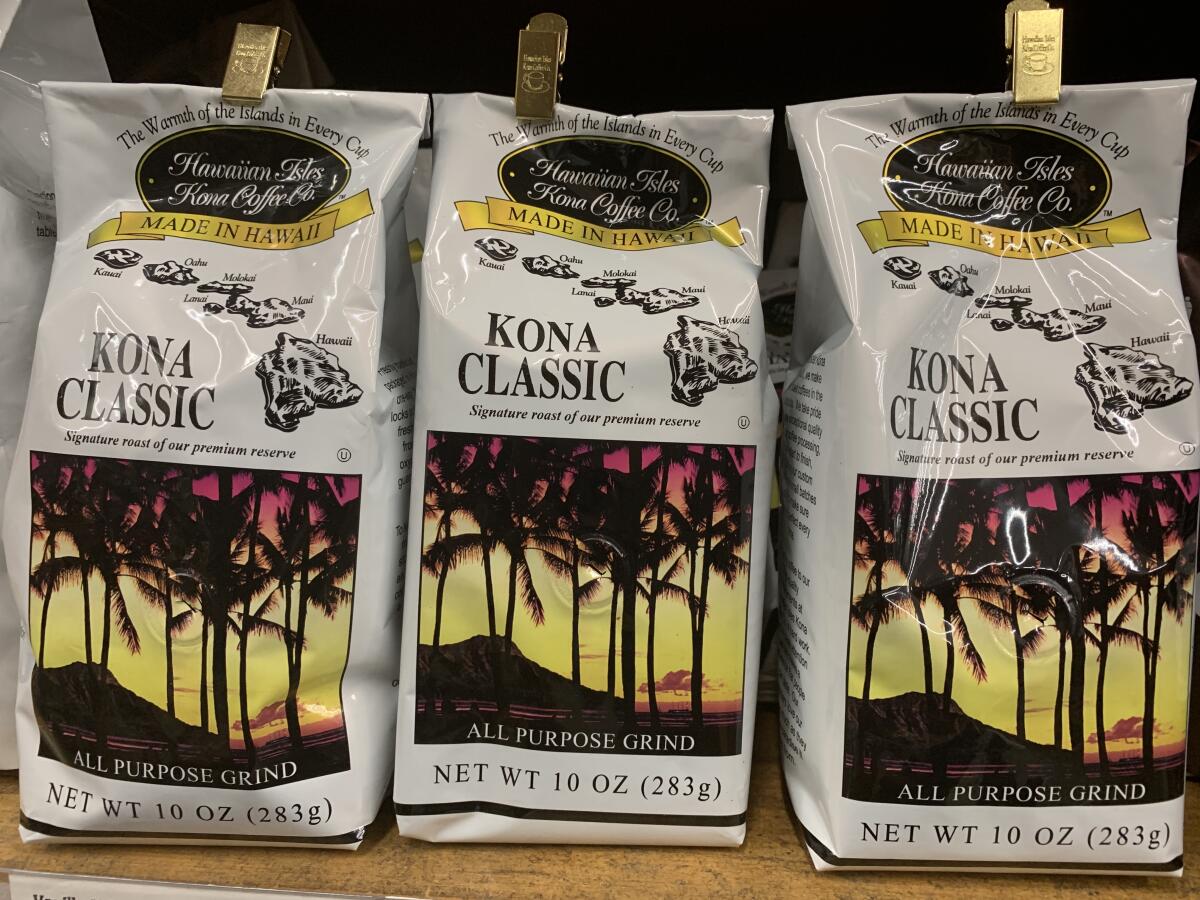
Roasted Kona beans fetch about $33 a pound when farmers sell them directly to consumers. They hope the settlement raises that price.
Some of the world’s ultra high-end coffees retail for more than a $100 a pound. Shriner, who runs Lions Gate Farms, which has belonged to her family for three generations, said $40 a pound would provide Kona growers a fair living.
One question is whether consumers will be willing to pay more to support that price.
Growers on Hawaii’s Big Island use chemical analysis to accuse retailers and coffee makers of passing off commodity beans as Kona.
Kona coffee dates to the 1820s, when missionaries started planting the crop. Plantations began springing up 20 years later but faded out toward the end of the century as labor costs rose.
Immigrants from Portugal and then Japan bought up the land, dividing it into small plots that they ran for generations as family farms.
Contemporary farmers are a mix of their descendants and newcomers willing to take on the region’s punishing four-wheel-drive tracks, fierce mosquitoes and back-breaking loads of beans.
Not all the growers care about the lawsuit.
Asked whether he would accept a payment, Jon Biloon launched into a stream of invective that turned into a lecture on the health effects of herbicides and the anti-capitalist writings of the late economist Thorstein Veblen.
He grows his Kona organically and blames neighboring farmers for applying chemicals that reach his land, harming the natural resistance of his crops, increasing his costs and lowering yields.
“Great, they get their 10 or 15 grand while the whole world goes to hell in a handbasket,” he said. “I really don’t want their money. Get a life, man, go grow a garden.”
Terry Fitzgerald, who arrived in Hawaii in the 1970s as a young hippie and turned an overgrown farm into a legendary producer of Kona beans, said he was only dimly aware of the lawsuit.
At 81, he said he had long since fulfilled his dream of leaving an engineering career for a warm place on a mountainside with an ocean view.
“I really don’t want to be Elon Musk or somebody like that, because after you get a certain amount of money, what the hell is it all about?” he asked. “People say, ‘You work really hard.’ We basically never work after lunch, because that’s enough.”
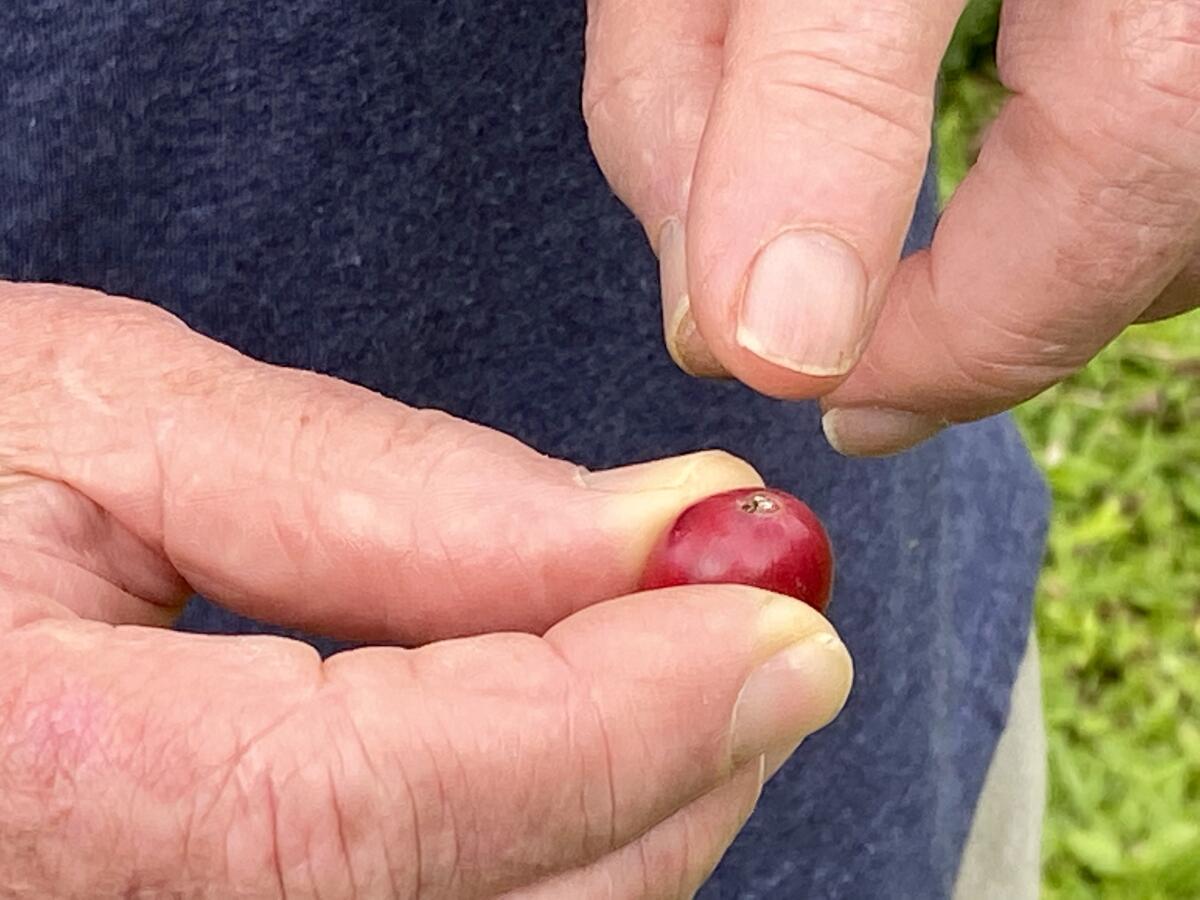
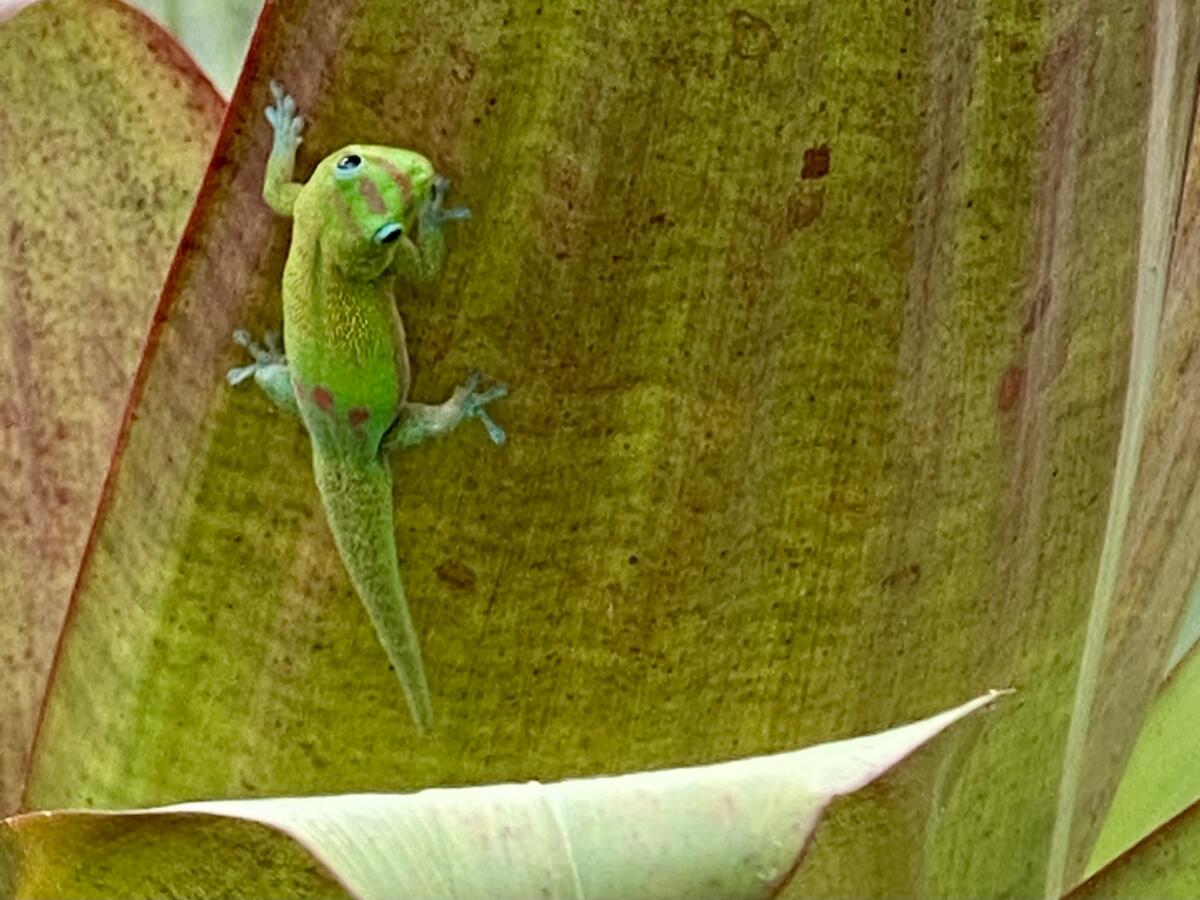
Over the years, growers have tried to get Hawaii’s law changed to boost the minimum content in Kona blends to 51%.
But as powerful blending companies applied political pressure, bill after bill died in legislative committees.
“The tourists want to bring something home, and 10% Kona costs maybe 10 bucks and it says ‘Kona’ on it, and nobody pays attention,” said Big Island farmer Richard Creagan, a former state lawmaker and House Agriculture chairman. “They might say, ‘This is crap,’ but at least it’s a gift, something from Hawaii, so the blenders make a lot of money on it.”
Chuck Jones co-founded Jones Coffee Roasters, which built of five generations of organic sustainable coffee growing to operate a small chain of coffee shops and sell beans to others, including Starbucks and Whole Foods.
Until now, proving claims of false advertising has been difficult.
The muscle behind the current lawsuit — Corker et al vs. Costco Wholesale Corp. et al — is a new lab technology that the five growers who filed the case in 2019 say can detect Kona’s telltale chemical signatures and expose counterfeits.
The defendants that reached settlement agreements include Costco and Boyer’s, Cameron’s and Copper Moon coffee companies. All have denied wrongdoing, and their attorneys declined to comment.
The settlements total $13.1 million. CostPlus/World Market agreed to pay $200,000, and John Parry, president of Florida-based Gold Coffee Roasters Inc. and Costa Rican Gold Coffee Co. Inc., committed to $6.1 million.
Costco will pay nothing, but the company’s hefty sales volume makes its agreement to abide by labeling requirements worth a lot to farmers.
The holdouts include some big players: Amazon, Albertsons, T.J. Maxx, The Kroger Co. and Walmart.
Their lawyers did not comment, but Brad Thoreson, an attorney for Mulvadi Corp., another company continuing with litigation, said his clients can produce records showing that all the beans they sold as 100% Kona coffee were bought from three farms in the district.
News Alerts
Get breaking news, investigations, analysis and more signature journalism from the Los Angeles Times in your inbox.
You may occasionally receive promotional content from the Los Angeles Times.
The case could still wind up before a jury if more settlements are not reached.
Attorneys for the plaintiffs told them not to comment on the suit. But one of those growers showed a reporter around his five-acre farm at the end of a four-wheel-drive track on the slopes of Mauna Loa.
Wielding a folding handsaw, 75-year-old Bob Smith clambered through tangled undergrowth to prune trees bearing bright red beans. Beyond alleged counterfeiters, his nemeses are rats, invasive plants, twig- and berry-boring beetles and coffee leaf rust, a predatory fungus from 19th century Africa that reached the Big Island last fall.
Pests and diseases could result from climate change, along with inadvertent spread by tourists, global trade shipments and the coffee blenders that mix beans from South America and elsewhere.
Smith roasts his coffee in small batches on his back porch, while his wife, Cea, handles the desk work and the shipping.
“I love the life of a coffee farmer, but it’s getting harder and harder,” he said. “None of our kids wanted to be farmers; they saw how hard we work. We made sure they all went to school, and they moved away.”
More to Read
Sign up for Essential California
The most important California stories and recommendations in your inbox every morning.
You may occasionally receive promotional content from the Los Angeles Times.
